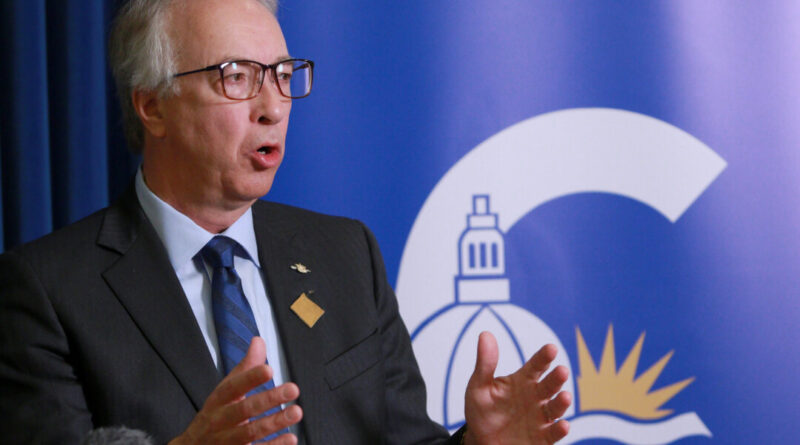BC Conservatives Reveal Platform Costs, Pledge Balanced Budget
The Conservative Party of B.C. has released its costed platform just days before the election, stating that their plan aims to achieve a balanced budget within two terms.
During a press conference at the University of British Columbia campus on Oct. 15, party leader John Rustad unveiled the platform costs.
“I’m not going to propose drastic cuts,” he stated. “We aim to safeguard the essential front-line services required in B.C.”
In 2008, B.C. became the first region in North America to implement a carbon tax. Provinces are mandated by the federal government to enforce the federal carbon tax scheme if they lack their own carbon pricing system.
Furthermore, the party has pledged a rent and mortgage rebate starting in 2026, along with reducing the small business tax to 1 percent.
Rustad also emphasized his party’s commitment to conducting a Taxpayer Respect Audit to scrutinize government spending.
The platform specifies that “Common Sense Change for BC” entails additional expenses in the operating budget totaling $2.3 billion across Budget 2025 and Budget 2026.
Part of these costs include an extra $55 million for public security initiatives, such as recruiting more sheriffs and judges, and enhancing addictions treatment in penitentiaries.
Moreover, there is a $1.1 billion allocation for housing construction initiatives, including tax incentives; $60 million more for education to facilitate the establishment of new schools and broaden homeschooling and other alternative options.
The plan also earmarks a $900 million upsurge in health-care spending for 2025, along with an additional $500 million in 2026, and an extra $38 million for addictions treatment.
The party’s proposal includes allocating an extra $37 million for child care, encompassing augmenting the affordable child care benefit and introducing 24-hour child-care spaces. If elected, the Conservatives plan to allocate an extra $10 million for economic reconciliation with the Indigenous community, which involves provisions for clean water and housing on reserves.
The plan entails a $610 million augmentation for capital projects and expanding public transportation, which includes covering TransLink for two years. Additionally, provincial investment in the agriculture sector would increase by $90 million under a Conservative administration.
Rustad’s strategy outlines providing an additional $10 million in capital funding for tech companies and enhancing senior care with a $142 million increase to support an expansion of home care and adding more long-term care beds.
Furthermore, the Conservatives aim to heighten spending on reproductive health by $55 million, covering the second round of IVF treatments, cervical and ovarian cancer research and treatment, and making adoption more affordable.
NDP Costed Platform
BC’s NDP previously unveiled their costed platform on Oct. 3, estimating a spending rise of $2.9 billion over the next three years, resulting in a deficit of around $9.6 million. One of the most significant promises made by the party is a $1,000-per-household grocery rebate to be implemented in 2025.
in an Oct. 13
video
shared on social media.
Green Party Leader Sonia Furstenau also criticized Rustad’s plan, labeling it “disorganized” and “outdated.” She argued that it neglected issues such as poverty, inequality, and science.
She emphasized that her party is the sole entity proposing a “progressive vision” for the province centered on clean energy, equality, and opportunity.
Voters in B.C. are scheduled to cast their ballots on Oct. 19.
The Canadian Press contributed to this report.





